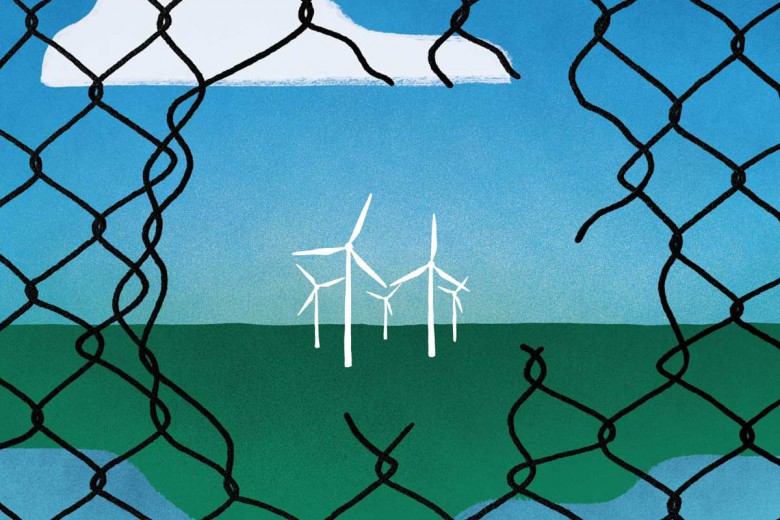
And all of the crew they were brave men,
But the Captain he was braver.
He said ‘Never mind the ship me boys
There’s none of us here can save her.
Let her go down. Swim for your lives!
Swim for your children, swim for your wives
But let her go down.’
— Knight, sung by Steeleye Span
This ship may not yet be going down, but it’s certainly heading straight for the rocks.
How do we change course? Or failing that, where are the lifeboats that can preserve us and carry us back to shore? In less nautical terms, these are the sorts of questions with which this issue of Briarpatch is concerned.
The effort to unplug or power-down the global economy is emerging as the single greatest ecological challenge of our time. Increasing numbers of activists, visionaries and sympathizers of all ages are coming out of the woodwork to articulate the challenge and begin to address it.
Establishment pundits, however – on those rare occasions when they admit the need to do something about climate change, peak energy, declining fisheries and other natural limits rising before us – persist in their assurances that we can solve these problems without fundamentally changing the way we sustain ourselves, unshakable in their faith that endless economic expansion is both possible and desirable.
George Monbiot would respond that this is utter folly. The eight sentences it takes him to explain why bear repeating in their entirety:
bq.“In a lecture to the Royal Academy of Engineering in May, Professor Rod Smith of Imperial College explained that a growth rate of three per cent means economic activity doubles in 23 years. At 10 per cent it takes just seven years. This we knew. But Smith takes it further. With a series of equations he shows that ‘each successive doubling period consumes as much resource as all the previous doubling periods combined.’ In other words, if our economy grows at three per cent between now and 2040, we will consume in that period economic resources equivalent to all those we have consumed since humans first stood on two legs. Then, between 2040 and 2063, we must double our total consumption again. Reading that paper I realized for the first time what we are up against” (emphasis added).
Continued economic growth is, quite simply, not an option. For the sake of our children, for the sake of life on this planet, we must find another way. And individual lifestyle choices may be a good start, but they’re not nearly sufficient. As Chris Benjamin points out in this issue, “only 20 per cent of [Canadians] say we’re doing anything to reduce our environmental impact. And only 10 per cent of us feel any guilt about that.” Atomized individuals making changes – even major changes – in their purchasing patterns can do little more than scratch the surface of this problem as long as growth remains the core economic principle. Making the necessary changes will require bold and audacious actions from individuals, organizations, businesses, and from all levels of government.
The good news is that there’s no shortage of opportunities to participate. Nor is there any shortage of books, articles, blogs and other learning tools to guide and inspire us along the way. Lifeboats, to return to the waterlogged metaphor with which I began, come in many forms, and we don’t all need to agree on any particular design before we start building them.
It is my hope that the following articles can serve as a catalyst for further engagement in this issue. Among them you’ll find a few conceptual frameworks for understanding the situation, analyses of the challenges and opportunities ahead and profiles of initiatives already underway.
Our situation may indeed be daunting, but consider this: has there ever been an historical moment more ripe, or a population better informed and better equipped, for radical experimentation, innovation and transformation? How fortunate we are to be alive and plugged-in at this particular moment in time.






